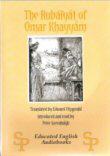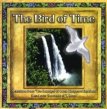 In a recent volume Khodadad Kaviani, associate professor at Central Wahington University, defines Khayyaamism as “a particular worldview that (l) questions the legitimacy of religious practices and beliefs that are contrary to reason; (2) views death as part of life; (3) promotes the enjoyment of life here and now; (4) values camaraderie and friendship; and (5) expresses ideas in short poems.” As a young man, Kaviani left his country in 1979, and had to find his way in the USA. Reading Iranian poetry helped him to stay in touch with his cultural roots, and in Khayyaamism, he would find advice on “how to be a friend, what to do with money, why religion is not all that’s cracked up to be, and much more.”
In a recent volume Khodadad Kaviani, associate professor at Central Wahington University, defines Khayyaamism as “a particular worldview that (l) questions the legitimacy of religious practices and beliefs that are contrary to reason; (2) views death as part of life; (3) promotes the enjoyment of life here and now; (4) values camaraderie and friendship; and (5) expresses ideas in short poems.” As a young man, Kaviani left his country in 1979, and had to find his way in the USA. Reading Iranian poetry helped him to stay in touch with his cultural roots, and in Khayyaamism, he would find advice on “how to be a friend, what to do with money, why religion is not all that’s cracked up to be, and much more.”
Khayyám’s short poems may serve as a vehicle for readers to take a more critical view of issues and values that each new generation has to discover and to discuss. In order to do so, Kaviani provides a method to study the quatrains. Each verse is given in Persian, followed by a translation into English. Next, under the headings “Conversation starter” and “Dig deeper” a varying number of questions is posed for the reader to answer.
In this respect, it is irrelevant to dwell on the question whether Khayyám did really write these verses, “because his poetry represents a way of thinking about life (…), a worldview that opposes religious control over people’s lives and promotes living a full life here and now, in a simple way that brings joy to the person and others.”
Although the methodical approach may seem a bit schoolmasterish (there is a chapter “Note to teachers” with rather strict instructions), it is a brave attempt to make our troubled world a better place to be.
Rethinking khayyaamism. His controversial poems and vision. Khodadad Kaviani. Lanham etc., Hamilton Books, 2014. xii, 131 p. ISBN: 9780761864066.
 The Rubaiyat of Omar Khayyam. By E.F. Thompson. Narrated by Mark Turetsky.
The Rubaiyat of Omar Khayyam. By E.F. Thompson. Narrated by Mark Turetsky. The Rubaiyat of Omar Khayyam. Translated by Edward FitzGerald. Narrated by David Calderisi.
The Rubaiyat of Omar Khayyam. Translated by Edward FitzGerald. Narrated by David Calderisi. The Rubaiyat of Omar Khayyam. Translated by Edward FitzGerald. Introduced and read by Peter Greenhalgh.
The Rubaiyat of Omar Khayyam. Translated by Edward FitzGerald. Introduced and read by Peter Greenhalgh. Rubaiyat of Omar Khayyam. By Edward FitzGerald. Narrated by Robert Bethune.
Rubaiyat of Omar Khayyam. By Edward FitzGerald. Narrated by Robert Bethune. Alfred Drake reads The Rubaiyat of Omar Khayyam. By Edward FitzGerald.
Alfred Drake reads The Rubaiyat of Omar Khayyam. By Edward FitzGerald. The Rubaiyat of Omar Khayyam explained. By Paramhansa Yogananda. Narrated by Donald J. Waters.
The Rubaiyat of Omar Khayyam explained. By Paramhansa Yogananda. Narrated by Donald J. Waters. The Bird of Time. Selections from The Rubaiyat of Omar Khayyam explained. Voice and instrumentation by Swami Kriyannda.
The Bird of Time. Selections from The Rubaiyat of Omar Khayyam explained. Voice and instrumentation by Swami Kriyannda.